Hello, it’s Ed from Elderly Independence. We’re going to touch upon a sensitive yet essential topic today: why the elderly can become self-centered. This topic is close to my heart because it concerns a shift in behavior that can profoundly impact the dynamics within families and caregiving relationships.
Some of you may have noticed this change in your older loved ones and may be wondering why it happens. Drawing from my personal experiences, scientific research, and advice from geriatric experts, we will explore the psychological, emotional, and physiological factors that can cause some elderly individuals to appear more self-centered.
Let’s embark on this journey of understanding together, gaining insights that can help us foster more empathetic, patient, and effective interactions with our elderly loved ones.
Understanding why the elderly become self-centered is important in order to provide appropriate care and support for this population. It is crucial to approach this topic with empathy and understanding, as self-centered behavior in the elderly is often a result of underlying issues or challenges they may be facing.
In this article, we will explore the reasons why some elderly individuals become self-centered. We will delve into the psychological factors that contribute to this behavior, such as changes in cognitive function or mental health issues. Additionally, we will examine the social factors that may influence self-centeredness in the elderly, such as loneliness or a lack of social support. Lastly, we will explore the physiological factors that can contribute to self-centered behavior, such as chronic pain or physical limitations.
It is important to note that not all elderly individuals exhibit self-centered behavior, and this article does not seek to generalize or stigmatize this population. Rather, it aims to provide insights and understanding into the factors that may contribute to self-centeredness in some elderly individuals.
By gaining a better understanding of the reasons behind self-centered behavior in the elderly, caregivers, family members, and healthcare professionals can develop effective strategies to cope with and manage this behavior. Promoting empathy and compassion in the care of the elderly is essential in addressing self-centeredness and maintaining positive relationships and social interactions.
In the following sections, we will explore the psychological, social, and physiological factors contributing to self-centered behavior in the elderly. We will also discuss coping strategies and the role of caregivers and family members in managing self-centered behavior.
Elderly Become Self-Centered: Definition of self-centered behavior in the elderly

Self-centered behavior in the elderly refers to a tendency for older individuals to focus primarily on their own needs, desires, and concerns, often at the expense of others. It is important to note that not all elderly individuals exhibit self-centered behavior, and it is not a characteristic that is exclusive to this age group. However, there are certain factors that may contribute to the development or exacerbation of self-centeredness in older adults.
One possible explanation for self-centered behavior in the elderly is the natural process of aging itself. As individuals age, they may experience physical and cognitive decline, which can lead to a heightened focus on their own well-being. This can manifest as increased self-interest and a decreased ability to consider the needs and perspectives of others. Additionally, older adults may face a variety of challenges and losses, such as the loss of loved ones, declining health, or changes in social roles, which can further contribute to self-centeredness as they prioritize their own needs and attempt to cope with these changes.
Psychological factors can also play a role in self-centered behavior in the elderly. For example, some older adults may develop a sense of entitlement or a belief that they have earned the right to be self-centered due to their age or life experiences. Others may struggle with feelings of loneliness or isolation, leading them to focus more on themselves as a means of self-preservation. Additionally, certain personality traits, such as narcissism or a lack of empathy, may become more pronounced in older age, further contributing to self-centered behavior.
Social factors can also influence self-centeredness in the elderly. As individuals age, they may experience changes in their social networks, such as the loss of friends or family members, retirement, or a decrease in social activities. These changes can lead to a narrowing of social interactions and an increased focus on oneself. Additionally, societal attitudes towards aging and the elderly can contribute to self-centered behavior, as older adults may feel marginalized or devalued, leading them to prioritize their own needs and concerns.
In conclusion, self-centered behavior in the elderly can be influenced by a variety of factors, including the natural process of aging, psychological factors, and social factors. It is important to approach this behavior with empathy and understanding, recognizing that it may be a response to the challenges and changes that older adults face. By promoting empathy and compassion in the care of the elderly, and providing support and resources to address their needs, we can help
Psychological factors contributing to self-centeredness in the elderly
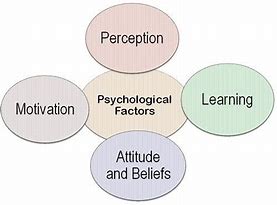
As individuals age, they may experience various psychological changes that can contribute to self-centered behavior. These factors can include cognitive decline, changes in personality, and a sense of loss or fear.
One of the main psychological factors that can contribute to self-centeredness in the elderly is cognitive decline. As individuals age, they may experience a decline in cognitive abilities, such as memory, attention, and problem-solving skills. This decline can lead to a heightened focus on oneself as individuals may struggle to remember or understand the perspectives and needs of others. They may become more self-absorbed as they try to navigate and make sense of their changing cognitive abilities.
Changes in personality can also play a role in self-centered behavior in the elderly. Some individuals may become more self-centered as they age due to changes in their personality traits. For example, a once outgoing and social individual may become more introverted and focused on their own needs and desires. These changes in personality can be influenced by various factors, including biological changes in the brain, life experiences, and the loss of loved ones.
Additionally, a sense of loss or fear can contribute to self-centeredness in the elderly. As individuals age, they may experience the loss of friends, family members, or their own physical and cognitive abilities. These losses can lead to feelings of fear, vulnerability, and a heightened focus on oneself. The fear of further loss or decline can cause individuals to become more self-centered as they try to protect themselves and maintain a sense of control.
It is important to note that not all elderly individuals exhibit self-centered behavior, and these factors may not apply to everyone. However, understanding the psychological factors that can contribute to self-centeredness in the elderly can help caregivers, family members, and healthcare professionals develop strategies to address and cope with this behavior. By promoting empathy, and understanding, and providing support, it is possible to create a more compassionate and inclusive environment for the elderly.
Social factors contributing to self-centeredness in the elderly
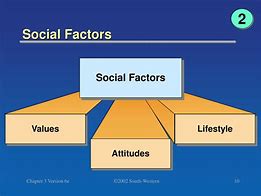
Social factors can play a significant role in the development of self-centered behavior in the elderly. As individuals age, they may experience various changes in their social environment, which can contribute to a shift in their behavior and attitudes.
One of the primary social factors that can contribute to self-centeredness in the elderly is a decrease in social interactions and relationships. As people age, they may experience the loss of friends, family members, or spouses, leading to feelings of loneliness and isolation. This loss of social support can result in a heightened focus on oneself and a decreased ability to consider the needs and perspectives of others.
Additionally, changes in social roles and responsibilities can also contribute to self-centered behavior in the elderly. Retirement, for example, can lead to a loss of identity and purpose, causing individuals to become more self-focused as they try to navigate this new phase of life. Without the structure and responsibilities that come with work, some elderly individuals may struggle to find meaning and fulfillment, leading to a heightened focus on their own needs and desires.
Furthermore, societal attitudes towards aging can also influence self-centered behavior in the elderly. In some cultures, there may be a stigma associated with aging, leading individuals to feel marginalized or devalued. This can result in a defensive response, where elderly individuals prioritize their own needs and interests as a way to assert their worth and maintain a sense of control.
It is important to note that not all elderly individuals exhibit self-centered behavior, and the extent to which social factors contribute to this behavior can vary from person to person. However, by understanding the social factors that can contribute to self-centeredness in the elderly, caregivers, family members, and healthcare professionals can develop strategies to promote empathy, social engagement, and a sense of purpose in the lives of elderly individuals.
Physiological factors contributing to self-centeredness in the elderly
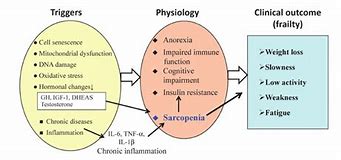
Physiological factors can play a significant role in the development of self-centered behavior in the elderly. As individuals age, they may experience various physical changes that can impact their behavior and mindset. Here are some physiological factors that contribute to self-centeredness in the elderly:
1. Cognitive decline:
Age-related cognitive decline, such as dementia or Alzheimer’s disease, can affect an individual’s ability to understand and consider the needs and perspectives of others. As their cognitive abilities decline, they may become more focused on their own needs and desires, leading to self-centered behavior.
2. Chronic pain and discomfort:
Many elderly individuals suffer from chronic pain or discomfort due to various health conditions. This constant physical discomfort can make them more preoccupied with their own well-being, leading to self-centered behavior as they prioritize their own needs over others.
3. Sensory impairments:
As people age, they may experience sensory impairments such as hearing loss or vision problems. These impairments can make it difficult for them to engage in social interactions and understand the needs of others. Consequently, they may become more self-centered as they struggle to communicate and connect with others effectively.
4. Changes in brain chemistry:
Aging can lead to changes in brain chemistry, including imbalances in neurotransmitters that regulate mood and behavior. These changes can contribute to self-centeredness by altering an individual’s emotional state and making them more focused on their own needs and desires.
It is important to note that not all elderly individuals exhibit self-centered behavior, and these physiological factors may not apply to everyone. However, understanding these factors can help caregivers and family members develop empathy and compassion toward elderly individuals who may display self-centered behavior.
In conclusion, physiological factors such as cognitive decline, chronic pain, sensory impairments, and changes in brain chemistry can contribute to self-centeredness in the elderly. These factors can impact their ability to consider the needs and perspectives of others, leading to a more self-focused mindset. By recognizing and understanding these physiological factors, caregivers and family members can provide support and care that promotes empathy and compassion, ultimately improving the well-being of the elderly individuals in their lives.
Impact of self-centered Behavior on relationships and social interactions
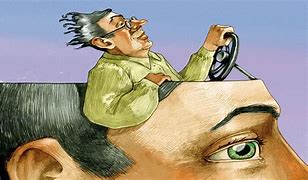
Self-centered behavior in the elderly can have a significant impact on their relationships and social interactions. When an elderly individual becomes self-centered, they may prioritize their own needs and desires above those of others, leading to strained relationships and conflicts with family members, friends, and caregivers.
One of the main consequences of self-centered behavior is a breakdown in communication. The elderly individual may become less interested in listening to others or engaging in meaningful conversations, as they are primarily focused on themselves. This can lead to feelings of frustration and isolation for both parties involved, as the person on the receiving end may feel ignored or unimportant.
Self-centered behavior can also lead to a lack of empathy and understanding towards others. The elderly individual may struggle to recognize or acknowledge the needs and feelings of those around them, which can strain relationships and create a sense of disconnect. This lack of empathy can be particularly challenging for family members and caregivers who are trying to provide support and care.
Furthermore, self-centered behavior can result in a loss of social connections and opportunities for engagement. The elderly individual may become less interested in participating in social activities or maintaining relationships, as they are primarily focused on their own needs and desires. This can lead to feelings of loneliness and isolation, which can have negative effects on their overall well-being.
It is important to note that self-centered behavior in the elderly is not always intentional or malicious. It can be a result of various factors, such as cognitive decline, physical limitations, or a sense of loss and vulnerability. Understanding these underlying factors can help caregivers and family members approach the situation with empathy and compassion.
In conclusion, self-centered behavior in the elderly can have a significant impact on relationships and social interactions. It can lead to communication breakdowns, a lack of empathy, and a loss of social connections. It is important for caregivers and family members to approach this behavior with understanding and compassion, taking into consideration the underlying factors that may contribute to it. By promoting empathy and compassion in the care of the elderly, we can help foster healthier relationships and improve their overall well-being.
Coping strategies for dealing with self-centered behavior in the elderly
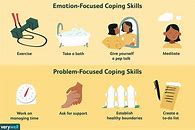
Dealing with self-centered behavior in the elderly can be challenging, but there are coping strategies that can help both the elderly individuals themselves and their caregivers or family members. It is important to approach this issue with empathy and understanding, as self-centeredness in the elderly may be a result of various factors such as changes in their physical or mental health, feelings of loneliness or isolation, or a need for control in their lives.
One effective coping strategy is to encourage open communication and active listening. By creating a safe and non-judgmental space for elderly individual to express their thoughts and feelings, they may feel more understood and less inclined to exhibit self-centered behavior. It is important to validate their emotions and provide reassurance, while also gently reminding them of the needs and perspectives of others.
Another strategy is to promote social engagement and connection. Loneliness and isolation can contribute to self-centered behavior, so encouraging the elderly individual to participate in social activities or join community groups can help alleviate these feelings. This can provide them with a sense of belonging and purpose, and also expose them to different perspectives and experiences.
Setting boundaries and establishing clear expectations is also crucial. It is important to communicate assertively and respectfully, expressing one’s own needs and concerns while also considering the needs of the elderly individual. By setting boundaries, caregivers and family members can help manage self-centered behavior and promote a more balanced and harmonious relationship.
Additionally, practicing self-care is essential for caregivers and family members. Taking care of one’s own physical and emotional well-being is important in order to effectively cope with and manage self-centered behavior. This can involve seeking support from other family members or support groups, engaging in activities that bring joy and relaxation, and seeking professional help if needed.
In conclusion, coping with self-centered behavior in the elderly requires a compassionate and understanding approach. By implementing strategies such as open communication, social engagement, setting boundaries, and practicing self-care, caregivers and family members can effectively manage this behavior and promote empathy and compassion in the care of the elderly.
Importance of empathy and understanding in addressing self-centeredness

Empathy and understanding play a crucial role in addressing self-centered behavior in the elderly. It is important to recognize that self-centeredness in the elderly is often a result of various factors such as physical limitations, cognitive decline, or feelings of loneliness and isolation. By approaching the situation with empathy and understanding, we can create a more supportive and compassionate environment for the elderly.
One of the key reasons why empathy is important is that it allows us to put ourselves in the shoes of the elderly individual. By understanding their perspective and the challenges they may be facing, we can better empathize with their behavior. This can help us respond in a more patient and compassionate manner, rather than becoming frustrated or dismissive.
Furthermore, empathy can also help us to identify the underlying needs or emotions that may be driving self-centered behavior. For example, an elderly person who constantly seeks attention may be feeling lonely or neglected. By recognizing this underlying need, we can address it in a more meaningful way, such as by spending quality time with them or involving them in social activities.
Understanding is also crucial in addressing self-centeredness in the elderly. It is important to educate ourselves about the physical and cognitive changes that occur with aging, as well as the impact of social isolation and loneliness. This knowledge can help us to have realistic expectations and respond in a more understanding manner.
In addition, understanding the individual’s life history, experiences, and personality can also provide valuable insights into their behavior. By considering their background, we can gain a better understanding of why they may be exhibiting self-centered behavior and tailor our approach accordingly.
Overall, empathy and understanding are essential in addressing self-centeredness in the elderly. By approaching the situation with compassion and recognizing the underlying needs and emotions, we can create a more supportive and nurturing environment. This not only benefits the elderly individual but also enhances the quality of relationships and social interactions for everyone involved.
Role of caregivers and family members in managing self-centered behavior
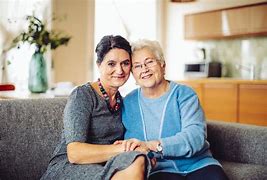
When dealing with self-centered behavior in the elderly, caregivers and family members play a crucial role in managing and addressing this issue. It is important for them to approach the situation with empathy, understanding, and patience.
One of the first steps in managing self-centered behavior is to recognize and acknowledge the underlying reasons behind it. Caregivers and family members should try to understand the psychological, social, or physiological factors that may be contributing to this behavior. This understanding can help them develop effective strategies to address and manage it.
Communication is key when dealing with self-centered behavior. Caregivers and family members should engage in open and honest conversations with the elderly individual, expressing their concerns and feelings in a non-confrontational manner. It is important to listen actively and validate their emotions, while also setting boundaries and expressing the impact of their behavior on others.
Setting clear expectations and boundaries is essential in managing self-centered behavior. Caregivers and family members should establish rules and guidelines that promote respectful and considerate behavior. This may involve discussing and negotiating compromises that meet the needs of both the elderly individual and those around them.
In addition to communication and boundary-setting, caregivers and family members can also encourage activities and engagements that promote empathy and compassion. This may involve involving the elderly individual in community service or volunteering opportunities, where they can interact with others and develop a sense of empathy towards their needs and experiences.
It is important for caregivers and family members to take care of their own well-being as well. Dealing with self-centered behavior can be challenging and emotionally draining. Seeking support from support groups, therapists, or other caregivers can provide a safe space to share experiences and gain insights on effective coping strategies.
In conclusion, caregivers and family members play a vital role in managing self-centered behavior in the elderly. By approaching the situation with empathy, understanding, and patience, they can develop effective strategies to address and manage this behavior. Communication, setting boundaries, promoting empathy, and seeking support are all important aspects of managing self-centered behavior in the elderly. Ultimately, promoting empathy and compassion in the care of the elderly can lead to improved relationships and social interactions.
Frequently Asked Questions
What causes a person to become self-centered?
Various factors can contribute to a person becoming self-centered. These could include upbringing and life experiences. For example, parents who excessively pamper their children without encouraging empathy and consideration for others may inadvertently promote self-centered behavior. Similarly, traumatic experiences may lead a person to prioritize their own needs above others’ as a defense mechanism. Certain personality disorders or mental health conditions may also contribute to self-centeredness. However, it’s essential to note that not all self-centered individuals have a disorder; it can be a behavioral issue that arises from learned patterns.
How do you deal with a selfish elderly parent?
Dealing with a selfish elderly parent can be challenging, but here are a few strategies:
Empathy and Understanding: Aging can often bring about feelings of loss of control and insecurity. These feelings can sometimes manifest as selfishness. Understanding this can help approach the situation with empathy.
Communication: Clearly communicate your feelings and the impact of their behavior on you. Use “I” statements to express your feelings without blaming them, for example, “I feel hurt when…”.
Set Boundaries: It’s important to set boundaries for your well-being. Determine what you can and cannot do for them and communicate these boundaries clearly.
Professional Help: Consider seeking advice from a geriatric care manager or mental health professional who can provide strategies and may be able to facilitate discussions.
What personality disorder is self-centered?
arcissistic Personality Disorder (NPD) is often associated with self-centered behavior. People with NPD have a deep need for excessive attention and admiration, troubled relationships, and a lack of empathy for others. They may also have an inflated sense of self-importance and entitlement. However, having self-centered tendencies does not necessarily mean a person has NPD; this is a specific diagnosis that must be made by a healthcare professional based on a comprehensive evaluation
What makes a person selfish and self-centered?
A number of factors can contribute to a person becoming selfish or self-centered. This can be influenced by their upbringing, life experiences, learned behaviors, or potential mental health conditions. Some people become self-centered as a defense mechanism to protect themselves from perceived harm or because they’ve found they get what they want this way. Lack of empathy, which can be due to both genetic and environmental factors, can also contribute to selfish behavior. Some people may simply not understand or care about the impact of their actions on others. Again, it’s worth noting that self-centeredness and selfishness are behavioral issues and don’t always signify a mental health disorder.
Other Places For You To Explore
Explore
Conclusion: Promoting empathy and compassion in the care of the elderly
As we wrap up this exploration of why the elderly can become self-centered, I hope the insights shared have shed light on this often misunderstood behavior change. Keep in mind that each elderly person is unique, and various factors can influence their behaviors. Compassion, understanding, and patience go a long way in managing these changes.
At Elderly Independence, my aim is to provide reliable, well-researched, and expert-backed information that aids in understanding and addressing the various facets of elderly care. I aspire to help you navigate these sometimes challenging transitions with grace and wisdom.
If you have further questions or need advice on dealing with behavioral changes in the elderly or any other aspect of elderly care, I’m here for you. Let’s continue to support and uplift our elders, ensuring their journey through the golden years is filled with dignity, respect, and love.






